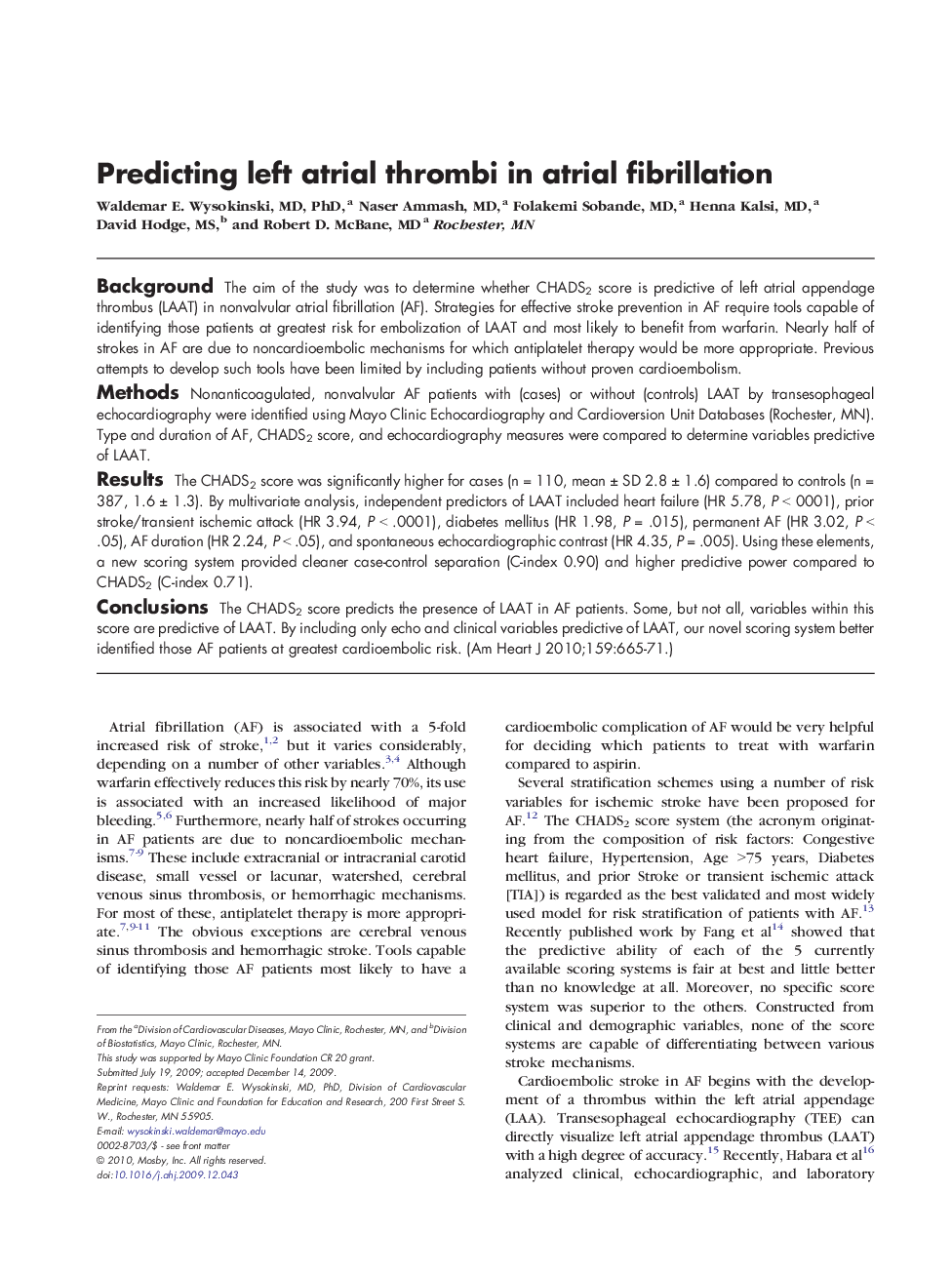| Article ID | Journal | Published Year | Pages | File Type |
|---|---|---|---|---|
| 2851146 | American Heart Journal | 2010 | 7 Pages |
BackgroundThe aim of the study was to determine whether CHADS2 score is predictive of left atrial appendage thrombus (LAAT) in nonvalvular atrial fibrillation (AF). Strategies for effective stroke prevention in AF require tools capable of identifying those patients at greatest risk for embolization of LAAT and most likely to benefit from warfarin. Nearly half of strokes in AF are due to noncardioembolic mechanisms for which antiplatelet therapy would be more appropriate. Previous attempts to develop such tools have been limited by including patients without proven cardioembolism.MethodsNonanticoagulated, nonvalvular AF patients with (cases) or without (controls) LAAT by transesophageal echocardiography were identified using Mayo Clinic Echocardiography and Cardioversion Unit Databases (Rochester, MN). Type and duration of AF, CHADS2 score, and echocardiography measures were compared to determine variables predictive of LAAT.ResultsThe CHADS2 score was significantly higher for cases (n = 110, mean ± SD 2.8 ± 1.6) compared to controls (n = 387, 1.6 ± 1.3). By multivariate analysis, independent predictors of LAAT included heart failure (HR 5.78, P < 0001), prior stroke/transient ischemic attack (HR 3.94, P < .0001), diabetes mellitus (HR 1.98, P = .015), permanent AF (HR 3.02, P < .05), AF duration (HR 2.24, P < .05), and spontaneous echocardiographic contrast (HR 4.35, P = .005). Using these elements, a new scoring system provided cleaner case-control separation (C-index 0.90) and higher predictive power compared to CHADS2 (C-index 0.71).ConclusionsThe CHADS2 score predicts the presence of LAAT in AF patients. Some, but not all, variables within this score are predictive of LAAT. By including only echo and clinical variables predictive of LAAT, our novel scoring system better identified those AF patients at greatest cardioembolic risk.
